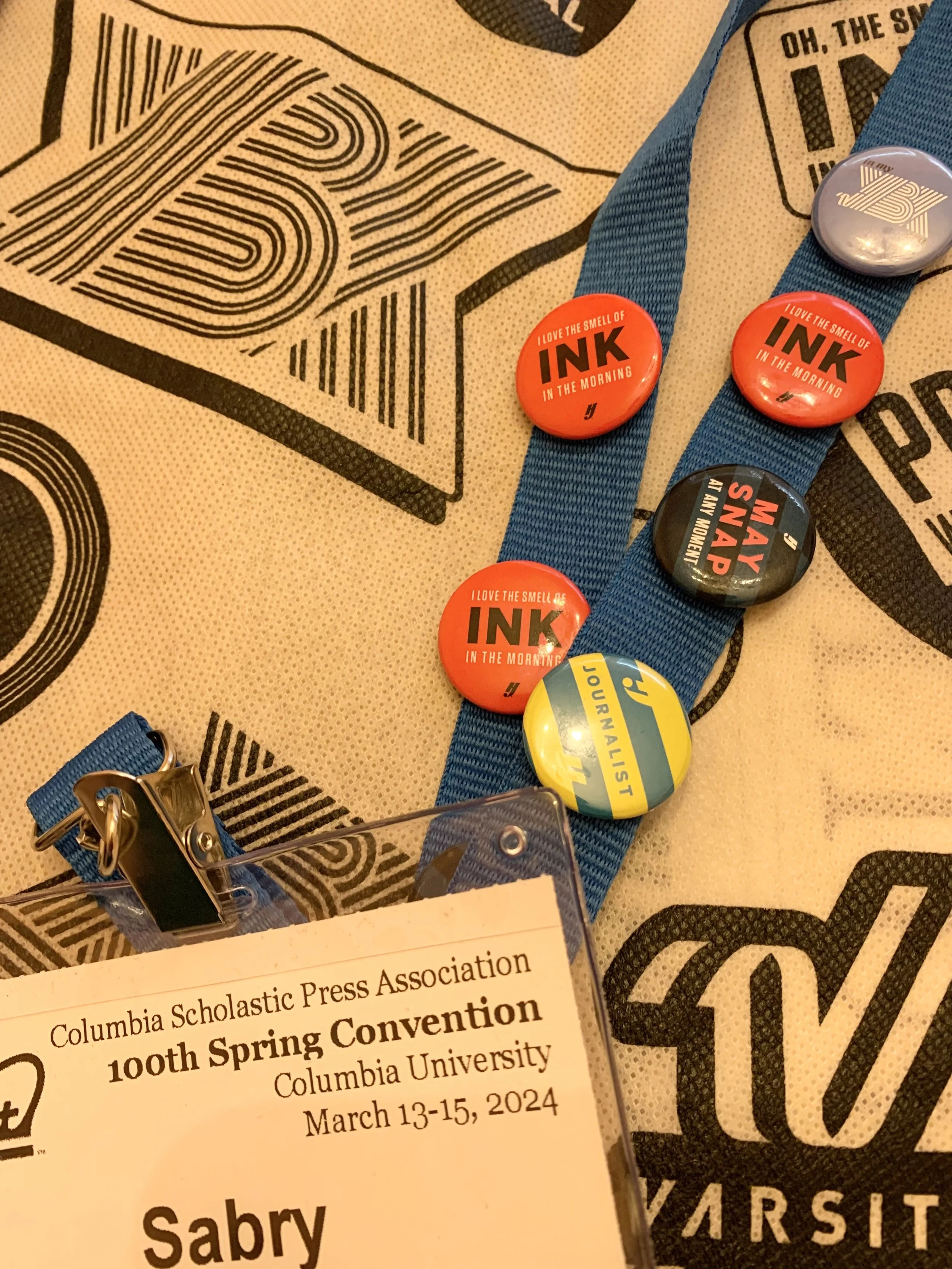5 take aways from CSPA
5 take aways from CSPA
This March I had the wonderful experience of attending Columbia’s Scholastic Press Association Conference. The conference had so many sessions, which were hosted by knowledgeable people in the journalism field, and high schools doing great work. So without further ado here are my biggest five takeaways.
Visuals are important for every publication
I went to a session done by Harker High School located in California. The student presenters talked about the importance of visual aesthetics. Prior to this I always understood the necessity of cover pictures for news stories but I had never thought about other visual aspects that can enhance an article and make it more exciting. At the conference I started to think about infographics in online news stories for the first time. While infographics are a tool I have not implemented yet, I can not wait to.
Always do research
I always do research, it is one of the most important parts of being a journalist. I went to a few sessions, which helped me rethink what research meant. One session I went to was hosted by a high school publication named “The Gattor” which is Brimmer's student news site. At the session a piece of advice that stood out to me was in Op-eds a solution is not always necessary, but a step forward is. As a journalist writing an Op-ed is a way to share a personal opinion, however, the audience should still be the focus. The step forward needs to be resreached and should be as accessible to the audience as possible.
While at the conference I also had the opportunity to go to a session with podcast host Anna Sale. During this Sale talked about the importance of knowing your interviewee. I had the opportunity to ask Sale, “How do you ask good questions when you don’t have the opportunity to do background research?” Sale answered, you have to start with what you know, and use that information to learn more. So what would this look like? A journalist is talking to local voters. The journalist already knows voters are there to vote. So the question asked should be, “What are you voting on today?” or “What is important to you as a voter?” From there the questions asked are the whys. So understand how to use the facts to learn more.
Write with all five senses
Lauren Mack, a food writer that hosted a session, gave a great piece of advice: write with all five senses. As a journalist, especially when writing about an experience your job is to transport the reader. When giving a review, you are doing service journalism. Descriptions should be colorful. Specifically when doing a food review the other patrons should be described, the scenery, and the smells, not just the taste of the food.
Repetition is everything
Stephen Thompson hosted a session about pop culture. When asked about the most important thing to do, Thompson answered repetition. With repetition a journalist will develop their voice, find their audience, and more.
You have more skills than you know
The final session I went to was one hosted by Daniel Roth from LinkedIn. When an audience member asked, “What is a skill people have that they often overlook?” He answered with the skill of persuasion. Many times, students think that they have no skills. However, it is important to remember all of the “soft skills” that one might already possess.
So those are the five biggest takeaways that I had. Thanks so much for reading!
